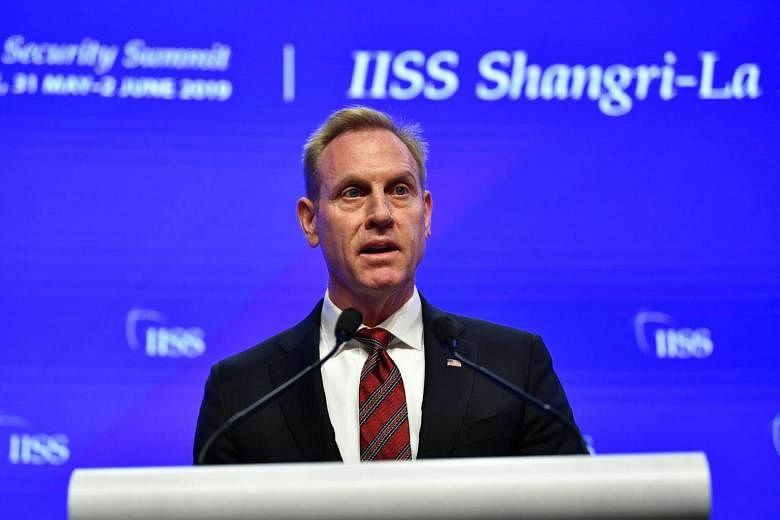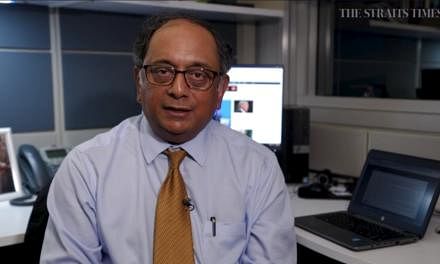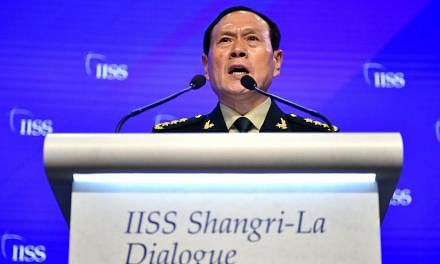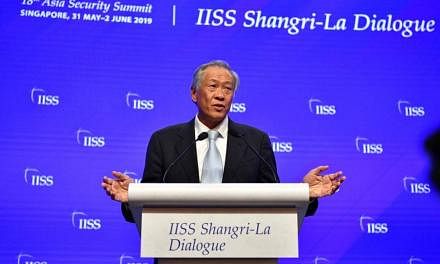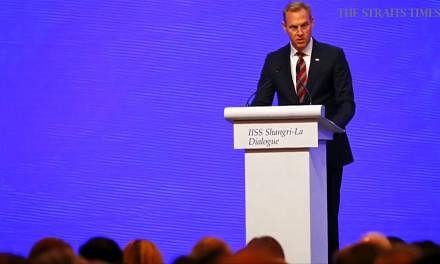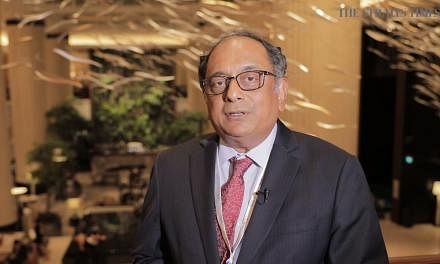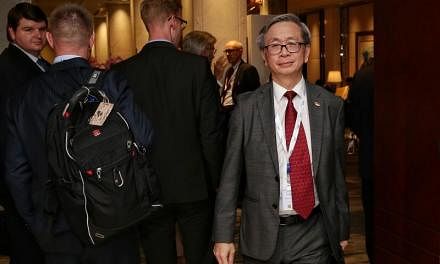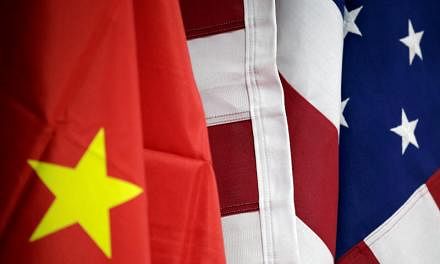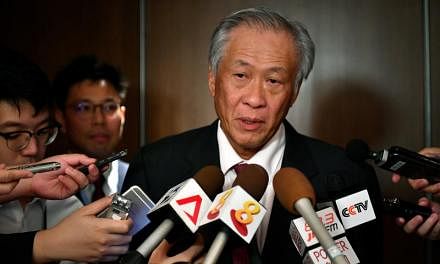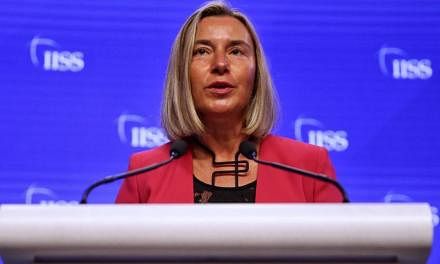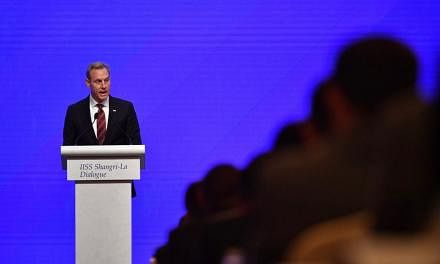The United States is going to maintain its predominance in the Asia-Pacific and will not tolerate any challenge to the existing order.
It would like China to follow international norms of behaviour that allow for a free and open Indo-Pacific region, and the US will compete and cooperate with China as it sees necessary.
Washington also wants its allies and partners to work with it even more closely.
These were some of the key interpretations made by international observers who heard US Acting Defence Secretary Patrick Shanahan's speech yesterday.
Mr Shanahan emphasised the importance that Washington placed on this region, describing it as a "priority theatre" for which there was "political will" and "resources". And he invited allies and partners to invest in their own sovereignty.
Still, observers attached importance to the veiled messages for China and felt there could be a hardening of positions, depending on how differences between the two sides' views on each other's roles, responsibilities and regional outlook play out.
Others felt that a much clearer sense could be gained after China's Defence Minister, General Wei Fenghe, speaks today.
Mr Shanahan made it clear that the US has become serious about its Indo-Pacific strategy and would like to maintain its influence, said Dr Li Mingjiang, associate professor and coordinator of the China programme at the Institute of Defence and Strategic Studies in Singapore. At the same time, the US defence chief did not want to antagonise China, Dr Li said.
"There were veiled references to China... He emphasised competition but also talked about military cooperation and urged allies to work together to deter China."
Sharing a similar view, Dr Ian Storey, a senior fellow at the Iseas - Yusof Ishak Institute, said Mr Shanahan's speech was part reassurance and part calling China out on its behaviour in the South China Sea and over the Belt and Road issue. It was notable that he stressed competition does not mean confrontation and that the US and China can work out their problems, Dr Storey said.
While Mr Shanahan was expected to outline his plans to operationalise the free and open Indo-Pacific region, he did not go into much detail, other than stating that the US is modernising to meet these challenges from China and other countries, Dr Storey noted.
"So, I think there will be some disappointment about that."
General Benjamin Madrigal, Chief of Staff of the Armed Forces of the Philippines, said he felt Mr Shanahan opened talking points for his conversation with China and much would depend on the issues raised and how those in conflict are resolved. Speaking for his country and Asean, he said: "We want to have a peaceful and a developed region. Conflict will affect our development."
Dr Termsak Chalermpalanupap, a fellow at the Iseas - Yusof Ishak Institute, noted that Mr Shanahan talked about establishing a network for regional security and about allies and partners.
"This is good. In the beginning, we understood it could be a US-led containment against China and that was bad. But now slowly, the US is adjusting," he said.
Professor C. Raja Mohan, director of the Institute of South Asian Studies at the National University of Singapore, said: "My sense is that we are really in the beginning of a prolonged phase, in which multiple differences between the US and China will have to be expressed and be dealt with."
